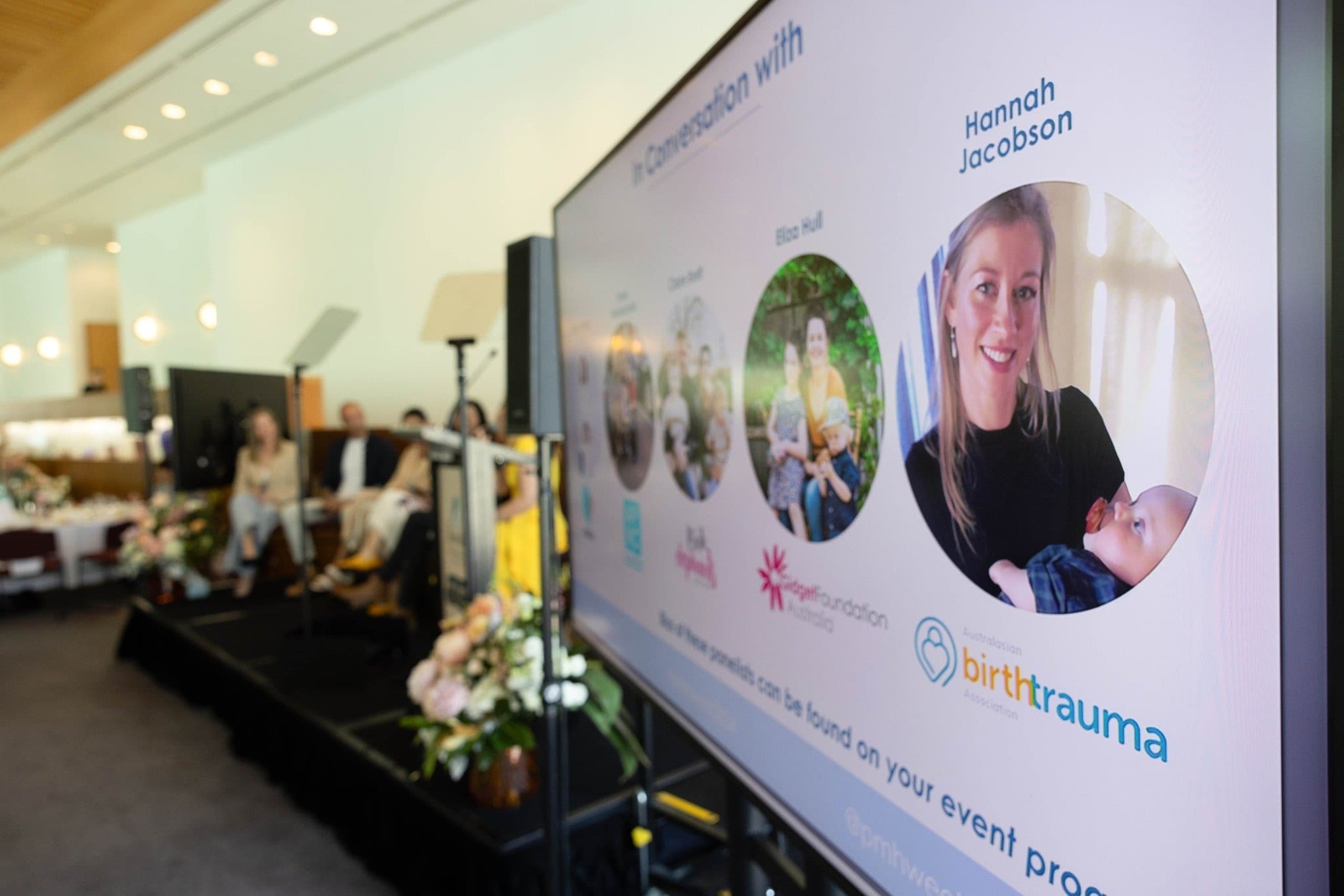Trigger Warning: This birth story discusses pelvic floor injury after a vacuum delivery and raises topics including IVF, endometriosis, levator avulsion, prolapse. If you are triggered by these topics you may wish to skip this blog or read it once you have support available. If you are seeking support for your birth trauma, you may wish to contact our Peer Support Service.
I’d like to start my story by first thanking all the wonderful women who have come forward with their own journeys. Reading your stories has helped me come to terms with my own and get to the point where I would like to share my story in the hope it helps another person feel they are not alone.
I have had a long journey to motherhood. I have battled endometriosis since I was a teenager and, as a consequence, found falling pregnant very difficult. I had to have nine rounds of IVF and four operations in order to conceive my beautiful little girl. It was a very long six years filled with a rollercoaster of emotions, many set-backs, and it was also physically and financially demanding. I saw six doctors before finding the right one for us, and we are so thankful to him.
Once falling pregnant I pretty much had an easy pregnancy with normal morning sickness until 17 weeks, but then a good second and third trimesters.
I started going into labour naturally at 38 weeks gestation. It was the week before Christmas in Queensland, so I was over the heat and feeling ready to get things happening. I was planning on getting an epidural; two doctors had previously told me I should as I had already been through so much with endometriosis and IVF.
I went to the hospital in the morning and waited. At 3pm my labour was augmented with drugs and I had my waters broken because things were progressing slowly. I ended up having about 45 minutes of intensive labour before the epidural worked. After about five hours my little girl was stuck and in distress, which I NOW know is common with the type of intervention I had. The doctor had to use the vacuum to suction her out, and this was done in a matter of minutes, so you can imagine it was not great for my pelvic floor.
Once my daughter entered the world I only saw her for about one minute before she was rushed to the nursery for the night, so I didn’t get that bonding experience until the next morning.
I think of my birth as a good one, and I was happy with my doctors, but I just wish I had been more informed about the consequences of the interventions used. Hadn’t I been through enough?
It wasn’t until I was four months postpartum that my lower back and hips gave way (bilateral sacroiliac joint dysfunction) and I also discovered that I had a levator ani avulsion and pelvic organ prolapse. I have had personal hurdles in my life, but this was the hardest thing I have ever dealt with physically. I couldn’t walk properly or lift my baby for three months, and I was lucky to rely on my mother for help.
I felt helpless, extremely depressed and thought my life was over until I found ABTA and the right support team. With time, I have recovered to the point where I am happy again and not thinking about my injuries anymore. I see a wonderful exercise physiologist who has helped me learn to live life again.
I wore a pessary for about eight months and was very scared to try for baby number two knowing I would not be able to use it anymore. For baby number two I had to have another operation and more IVF, which failed. But, while preparing for even more IVF, I fell pregnant, which was quite amazing.
I was completely terrified of living day to day without a pessary while looking after my two-year-old and being pregnant. But I can say now at 24 weeks that, thanks to my wonderful exercise physiologist and learning to trust my body, I have made it this far without any symptomatic issues with my hips, avulsion or pelvic floor.
If I have learned anything from my experiences it would be that we women are incredibly strong and courageous, and I would also tell myself back at four months postpartum that things will improve, physically and mentally, and I can live life to its fullest again with time and the right support.
If you would like to connect with a person who has experienced birth-related trauma, please contact our Peer2Peer Support service to connect with one of our Peer Mentors.











